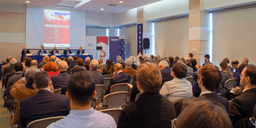
Turkish TARP: Answers to Frequently Asked Questions | Burak Dalgın, Güven Sak
We published two papers in April and May 2019 to make the case for a Turkish Troubled Assets Restructuring Program (“TARP”). Our main argument was that a public private partnership was needed to carve out toxic assets (non-performing and watchlisted loans) from bank balance sheets to ensure flow of credit and return to growth. Both papers attracted significant attention from policy makers, international financial institutions (IFIs), banks and financial investors. Based on our discussions, we are convinced that a well-designed model can bring together various stakeholders, source fresh international capital and address the challenge.
Our papers also prompted various questions. Therefore, we wanted to publish an “answers to frequently asked questions (FAQs)” memorandum to further help structure the discussion. By way of this paper, we would like to re-emphasize the need to act quickly, competently and decisively to bring Turkish economy back to growth. The need is getting more urgent, given the strains on the credit channel, problems for the real sector and the resulting increase in unemployment. Moreover, such a program could have spillover benefits for the broader economy, particularly if executed as part of a coherent macroeconomic strategy, and pay for itself quickly.
The potential increase in bank profits thanks to declining rates provide a cushion for any potential losses related to the toxic assets. The all time low global yields offer an opportunity to source international capital. It’s high time to act.
You may read fifth log from here.





